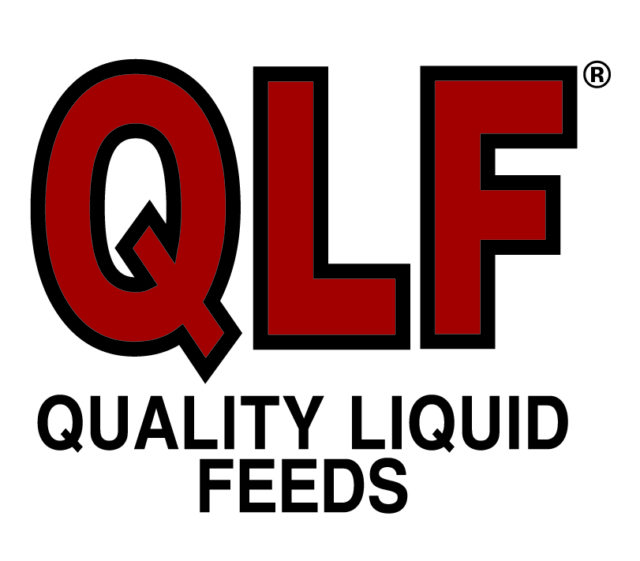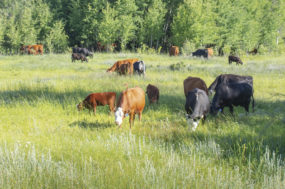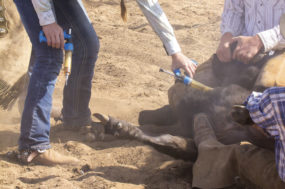After several months of planning, investing in feed and herd care, spring calving season is almost upon us. The calves that hit the ground in 2013 represent a considerable investment.
Because they are the future of our industry, calves should be provided proper care to get them off to the right start.
Newborn calf management begins with a colostrum feeding strategy. Because calves are born without any immune protection, they rely on the antibodies found in colostrum to protect them from diseases.
Cows naturally produce colostrum through their first milk in lactation; however, several outside factors can influence the quantity and quality of colostrum consumed by the calf.
If a calf receives colostrum that does not contain adequate immunoglobulin levels, the calf may not be able to consume enough antibodies to fully develop its immune systems for long-term protection.
Meanwhile, low quantities of colostrum mean calves might not get enough nutrition from the cow to get off to a successful start.
Studies show that if calves do not consume adequate levels of high-quality colostrum soon after birth, they are prone to higher levels of pre-weaning sickness and death loss.
In fact, research concludes calves that consumed inadequate levels of antibodies were nine times more likely to become sick and five times more likely to die before weaning.
In order to promote newborn calf health and long-term growth potential, producers must be sure their calves receive adequate levels of high-quality colostrum. Here is a look at four things beef producers need to be cognizant of when working to achieve this goal.
Antibody levels are not guaranteed by the cow
Colostrum is manufactured by the cow during the last several weeks of gestation. After calving, antibodies circulating in a cow’s bloodstream are transferred to the mammary system, to the colostrum and to the calf.
Unfortunately, there is no guarantee on how many antibodies will be transferred from the bloodstream to the mammary system or just how much colostrum the cow will make.
Pre-calving vaccination protocols can be useful tools to help elevate the number of antibodies in the cow’s bloodstream – but they don’t come with any guarantees either.
For a pre-calving vaccination program to be successful, a cow must mount an immune response to the vaccine.
There are a number of variables that may impact the immune response of the cow. If the immune response is limited, the antibodies available can be reduced.
Variables that may impact the vaccine include – but aren’t limited to – the health and nutrition status of the dam, weather, timing of the vaccination and booster shots.
Antibody levels produced and transferred through colostrum can also vary from cow to cow, regardless of other circumstances.
Read the label closely on your pre-calving vaccination protocol to ensure the first vaccine and boosters are administered accordingly and in a timely manner.
Because a significant amount of variables will impact the animal’s response, even with proper timing, one shouldn’t rely solely on the pre-calving vaccination program to protect the calf.
Adequate quality and quantity levels are required
Not only does a calf need to consume high-quality colostrum, it also needs to consume at least four quarts of it to receive adequate protection. Various factors can impact the amount of colostrum consumed by the calf.
Any cows heading into the calving season with a body condition score less than six on a nine-point scale will likely produce a lower quality and quantity of colostrum.
Because the amount of antibodies available to the calf will be diminished, the calf will likely have lower weaning weights, resulting in fewer marketable pounds.
First-calf heifers also tend to produce lower volumes of colostrum and might not produce enough to meet the calf’s needs. If a calf does not consume enough high-quality colostrum, it will not receive the immune protection it needs.
Any time you’re dealing with a cow where colostrum quality is in question, a colostrum replacer or supplement should be considered.
Time is of the essence
Timing is everything when it comes to colostrum consumption. When the calf drinks colostrum, the antibodies move through the calf’s system into its gastrointestinal tract where they are absorbed into the bloodstream.
The pathway between the gastrointestinal tract and the bloodstream is only open for a very short window of time.
The calf starts to lose its ability to absorb antibodies through the gastrointestinal tract at 6 hours old and can no longer absorb them at 24 hours.
Research also confirms that the sooner a calf consumes colostrum, the more maternal antibodies it can utilize. Any delay in the consumption of colostrum can put a calf’s health at risk.
Keep an eye out for first-calf heifers and more aggressive cows, as they typically will not let their newborn calves nurse immediately.
Lethargic calves should also be closely monitored. If a calf does not suckle right away, consider tube-feeding colostrum instead of allowing more time to pass.
Colostrum doesn’t guarantee scours protection
Even if a calf receives colostrum, it does not mean your herd is going to avoid scours. Other factors, like weather and environment, play a role.
If calves are born into a crowded environment, their first meal might be a mouthful of pathogens. Ideally, newborn calves should be kept in a clean and dry environment and protected from the weather.
Inclement weather can cause a calf severe stress, as newborns are unable to regulate body temperatures. A calf that is stressed and exposed to poor conditions is more prone to scours.
To minimize the risk of outside factors and best protect all calves, producers are encouraged to consider complementing the colostrum their cows produce with USDA-approved antibody products.
Concentrated antibody products can be fed to calves at the same time as colostrum for complete protection.
The antibodies in the product move directly to the gut, where they immediately bind and neutralize diarrhea-causing agents while also being absorbed into the bloodstream for extended immune protection.
Antibody products are available in bolus, gel and powder forms. They are also included in some colostrum replacer and supplement formulas for added value.
Concentrated antibody products also provide immunity against specific pathogens such as E. coli and coronavirus so the calf receives the best start possible and the producer’s investment is protected.
Working with a veterinary professional or animal health specialist to develop an appropriate calf disease prevention program that provides immediate immunity is strongly advised. Take steps to protect the future of your herd today.
PHOTO
Calves are born without any immune protection and rely on the antibodies found in colostrum to protect them from diseases. However, many factors can influence the quantity and quality of colostrum available to the calf. Photo courtesy of Progressive Cattleman staff.








